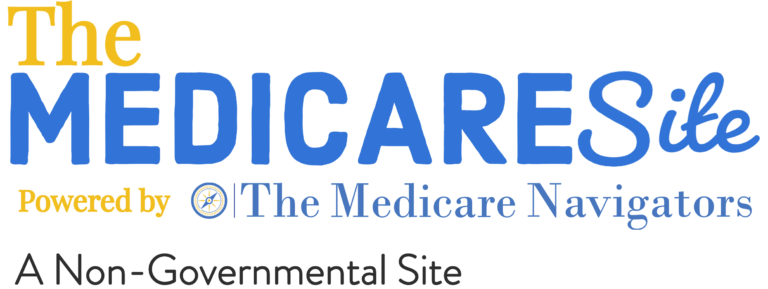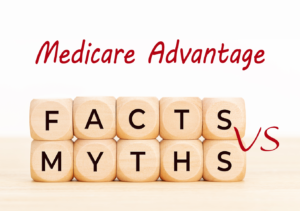Medicare is complicated and different scenarios can affect how and when you should or shouldn’t sign up.
1. People are eligible for Medicare for different reasons
It’s important to know the different ways people qualify for Medicare. Most know that you are eligible for Medicare when you turn 65. But people under 65 are also eligible if they have any of the following:
- Received Social Security Disability Insurance (SSDI) or certain Railroad Retirement Board (RRB) disability benefits for at least 24 months.
- If they have Amyotrophic Lateral Sclerosis (ALS), there’s no waiting period for Medicare.
- Some people with End Stage Renal Disease (ESRD) may be eligible for Medicare.
2. Some people get enrolled in Medicare Part A and Part B automatically
People living in the U.S. and U.S. Territories (except Puerto Rico) who are already getting Social Security are automatically signed up for Part A and Part B when they’re first eligible. They get a packet of information a few months before they turn 65 or when they get their 25th month of Social Security Disability or Railroad Retirement Board (RRB) benefits. At that time, they can choose to keep or decline Part B. But they can’t decline Part A unless they withdraw their original application for Social Security and pay back all Social Security cash benefits.
People are not automatically enrolled in Medicare if they are not getting Social Security. If they are not automatically enrolled, see our Complete Guide to Enrolling in Medicare Part A and B HERE.
3. People can only sign up for Medicare at certain times
If someone is eligible for Medicare because of their age, and they are not automatically enrolled, they can sign up when they are first eligible beginning with their Initial Enrollment Period (IEP). If they miss their initial enrollment period then they must wait for the General Election Period to enroll. They will get a Special Election Period if they continued to work past 65 and maintained creditable cover through an employer group plan. Read below for more information on each of these enrollment periods.
Initial Enrollment Period (IEP)
The 7-month period when someone is first eligible for Medicare. For those eligible due to age, this period begins 3 months before they turn 65, includes the month they turn 65, and ends 3 months after they turn 65. Coverage begins the month after a person signs up during their IEP. For those eligible due to disability, this period begins three months before their 25th month of disability payments, includes the 25th month, and ends 3 months after. Disabled individuals who have received disability benefits from Social Security for 24 months are automatically enrolled in Medicare.
General Enrollment Period (GEP)
People who missed their IEP can sign up between January 1–March 31 each year. Coverage will start the month after the person signs up.
Special Enrollment Period (SEP) Related to Coverage Under Group Health Plans
- This SEP is an opportunity for people who didn’t sign up for Medicare when first eligible because they had group health plan coverage based on current employment (their own, a spouse’s, or a disabled family member’s).
- A person may sign up for Medicare while they’re still covered under the group health plan based on current employment, or the first month when their coverage isn’t based on current employment. They may choose to have coverage begin on the month they sign up or at the beginning of any of the three months after they sign up.
- If they sign up for Medicare during any of the remaining seven months of this SEP, coverage will begin the month after they sign up.
- If a person qualifies for Medicare based on disability, and the group health plan is based on a family member’s current employment (other than a spouse’s employment), the employer offering the plan must have 100 or more employees. People who qualify for Medicare based on a disability may be eligible for an SEP based on their spouse’s current employment, or if a family member’s current employer has 100 or more employees.
Learn more about how to How to Transition to Medicare from Employer-Based Insurance in our previous blog.
4. Not all Employer Based Insurance May Be Creditable to Delay Part B
It’s critical that employees consider whether they should enroll in Part B when they’re first eligible for Medicare. Decisions about enrolling in Medicare for people with employer–based insurance depends on whether their coverage is creditable.
Generally, if a person (or their spouse) is still working at a company with more than 20 employees, and has employer-sponsored group health plan coverage based on that employment, they can delay enrollment in Part B. But, there are special rules for qualifying for the SEP Related to Coverage Under Group Health Plans.
COBRA allows people to temporarily keep employer or union coverage after their employment ends. However, COBRA coverage isn’t considered creditable coverage and does not qualify to delay Medicare. A person with COBRA who doesn’t sign up for Medicare when first eligible, may have to pay a life-long penalty. It’s important for people to sign up for Medicare as soon as their employment ends.
We know Medicare is confusing! If you need personal assistance with Medicare questions, please reach out to one of our licensed agents. Learn about who our agents are here!






